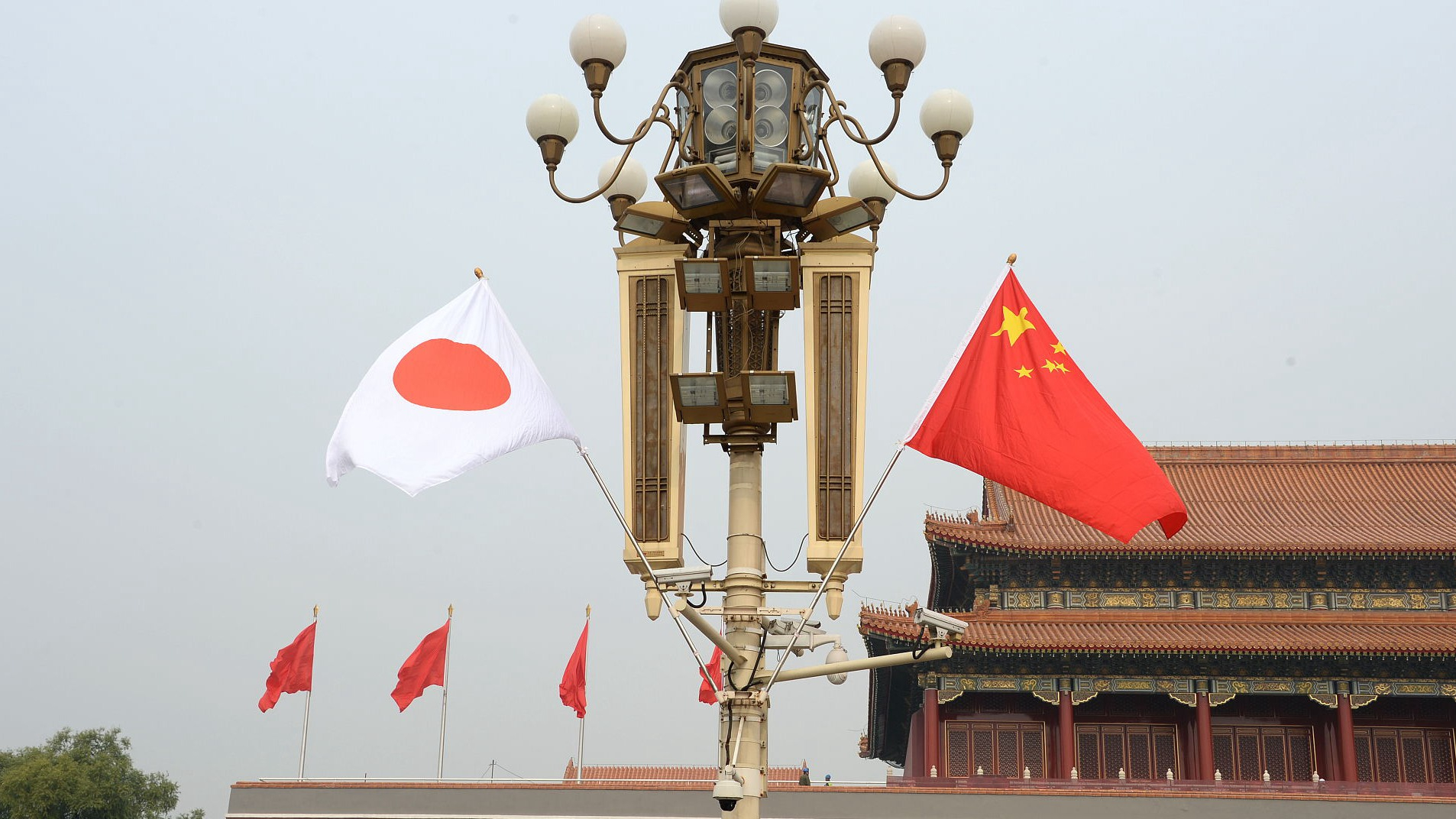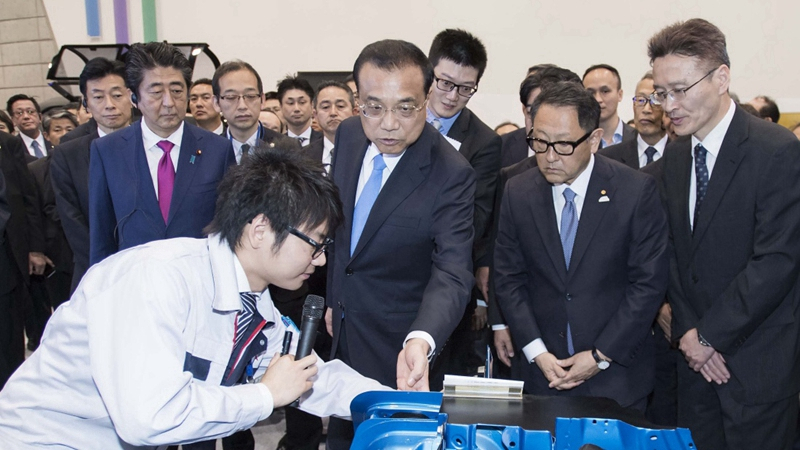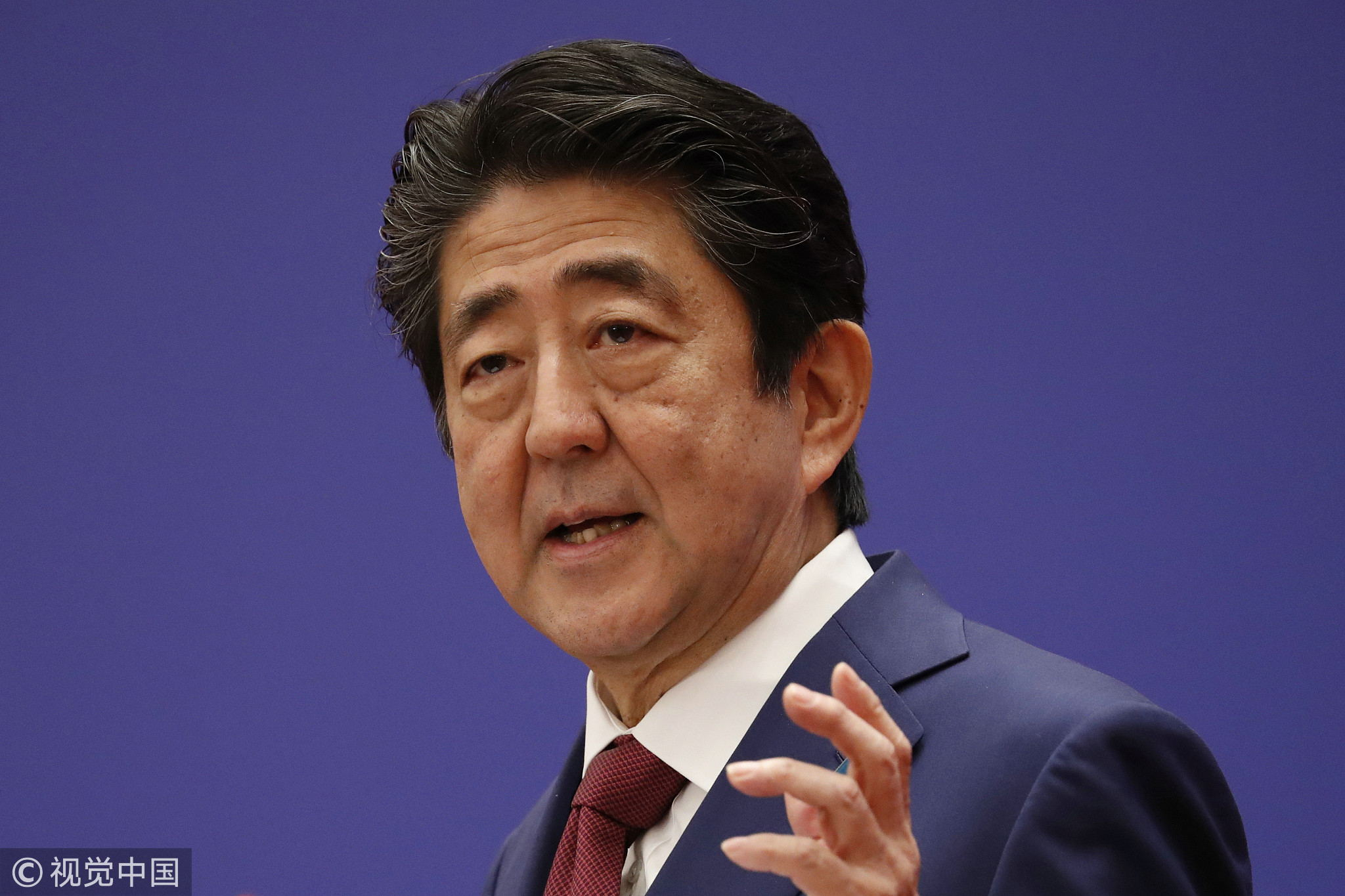
Opinions
18:38, 19-Dec-2018
2018 China-Japan ties: are warmer days on the horizon?
Updated
17:45, 22-Dec-2018
Zhou Yongsheng

Editor's Note: With 2018 drawing to a close, it is time to review the many ups and downs that occurred in the international community. Among others, Sino-Japanese bilateral relations have been thrown into the spotlight, witnessing major breakthroughs between the two countries. Zhou Yongsheng, a professor in the Institute of International Relations at China Foreign Affairs University, offers his insights to CGTN.
2018 is the turning point that has seen many breakthroughs in the China-Japan relations. On January 5, 2018, Japanese Prime Minister Shinzo Abe delivered a speech at a New Year party, focusing on the 40th anniversary of the signing of the China-Japan Treaty of Peace and Friendship in 2018. Abe noted he hoped that the anniversary could be a "milestone" for both countries to improve their bilateral relations.
From May 8 to 11, Chinese Premier Li Keqiang made an official visit to Japan after eight years. Japan received him with the highest standard. In particular, Prime Minister Abe personally decided to escort him throughout his visit.
This is an exceptional reception given by Abe, which reflects the great importance Japan attaches to this visit. Even when other foreign heads of state visit Japan, the prime minister rarely accompanies them all the way. It also shows that China-Japan relations are returning to normal after twists and turns in the past few years.
During Premier Li's visit to Japan, China and Japan signed the Memorandum on Business Cooperation in Third Countries. The two sides agreed to establish a working mechanism to promote Sino-Japanese business cooperation in third countries, establish and hold Japan-China Forums on Third Country Business Cooperation to promote exchanges between companies of Japan and China and their cooperation in third countries.

Chinese Premier Li Keqiang visits Japan in May 2018. /CGTN Photo
Chinese Premier Li Keqiang visits Japan in May 2018. /CGTN Photo
With regard to the cooperation under the Belt and Road Initiative (BRI), Abe stated feasibility can be studied for each project on the basis of development, transparency, economy and financial validity. It's easy to tell the conditions for cooperation offered by Abe. It shows Japan is very pragmatic in promoting cooperative relations with China.
From October 25 to 27, Abe paid a visit to China, and made a number of achievements on diplomatic and economic cooperation, which also pushed China-Japan relations to an expected climax in 2018.
During this visit, China and Japan also reached many practical agreements. Enterprises from China and Japan have signed agreements on business cooperation projects in third countries, with the total amount exceeding 18 billion U.S. dollars. These projects cover a wide range of areas such as infrastructure, logistics, IT, finance and energy. The signing of agreements among many enterprises between China and Japan shows that both countries have begun to work on practical projects under the bilateral cooperation agreement.
At the same time, it will help China and Japan to overcome the conundrums of vicious competition in third countries where the benefit goes to another competitor in the end, thus realizing mutual benefit and win-win results between China and Japan and the third countries.
In light of these visits between China and Japan, we can see that the China-Japan relations have gradually improved and returned to friendly relations from the past tussles, frequent frictions and even open confrontations.
Through these high-level visits, many practical agreements have been reached, which has reversed the negativeness clouding bilateral relations, raised the level of mutual trust and achieved a turning point and breakthroughs in bilateral relations.

Japanese Prime Minister Shinzo Abe speaks at a forum to explore market cooperation between Japan and China in third countries in Beijing, China, Oct. 26, 2018. /VCG Photo
Japanese Prime Minister Shinzo Abe speaks at a forum to explore market cooperation between Japan and China in third countries in Beijing, China, Oct. 26, 2018. /VCG Photo
Of course, this does not mean that China-Japan relations are perfect. There are still many obstacles and challenges in the future for the bilateral relations, and there are some uncertainties. While we are optimistic, we should also be vigilant in order to prevent the reversal and regression of China-Japan relations.
Firstly, the quality of China-U.S. relations will have a great impact on China-Japan relations. If China-U.S. relations continue to deteriorate and the U.S. imposes more trade sanctions on China, China-Japan relations won't make much progress even if both sides intend to, because the improvement of Japan's policy towards China largely hinges on the attitude of the U.S..
Japan may also take such opportunity to observe China's recognition in the international community. This is the biggest external factor affecting Japan's policy towards China.
Secondly, Japan's decision to convert the existing helicopter carrier into a multi-purpose carrier will enable Japan to have a strong maritime offensive capability and break the strategic military balance in East Asia.
If Japan goes on with military provocations against China in the South China Sea or other regions, including the East China Sea, this may become a factor which curbs the improvement in the bilateral relations.
Thirdly, China's domestic economy will also be an important factor affecting Japan's willingness to continue to improve its relations with China. If China's economy improves substantially, Japan will not want to lose China's huge market; If China's economy does not perform as expected, Japan may slow down or even stop improving its relations with China and choose to sit on its hands.
Fourthly, Japan only agrees to conditional cooperation with China under the BRI. Whether China can meet Japan's requirements in actual operation is an important factor which matters to their sustainable cooperation. If Japan's requirements can be met, the cooperation between China and Japan under the initiative will see good progress, and the cooperation will be expanded and deepened. Otherwise, the cooperation might be seriously impeded.
In a nutshell, China-Japan relations are not only full of promise for sustained improvement but also full of uncertainties and challenges. In 2018, the two sides have fully demonstrated goodwill and identified mutual interests, hoping that their policies can be understood by the other side and not lead to strategic misjudgments and misunderstandings, so as to promote the stable development of bilateral relations to a higher level.
(If you want to contribute and have specific expertise, please contact us at opinions@cgtn.com)

SITEMAP
Copyright © 2018 CGTN. Beijing ICP prepared NO.16065310-3
Copyright © 2018 CGTN. Beijing ICP prepared NO.16065310-3